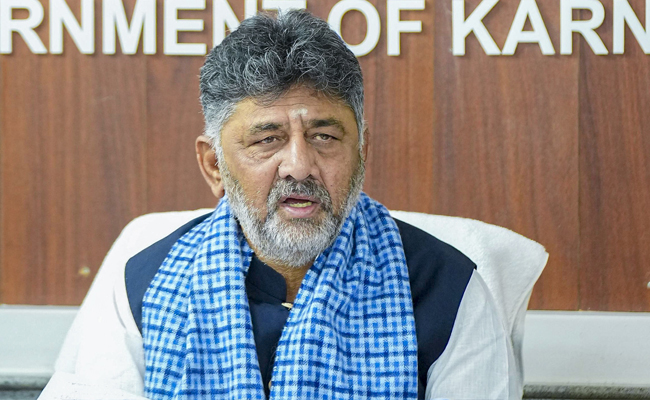London, Oct 24: An emerald and seed-pearl necklace owned by Maharani Jindan Kaur, the wife of Sikh emperor Maharaja Ranjit Singh, has sold for 187,000 pounds at a London auction after triggering a fierce bidding war, an official has said.
The necklace worn by Kaur, the final and the only one of Maharaja's wives not to commit Sati on his death, surpassed its estimated price between 80,000 and 120,000 pounds.
It was among a number of treasures from the Lahore Treasury auctioned as part of the 'Bonhams Islamic and Indian Art Sale' in London on Tuesday.
The entire sale, which had a number of items dating back to the Raj era, made an overall total of 1,818,500 pounds, the auction house said.
"In a highly successful sale, the Sikh treasures stood out with pride of place going to the magnificent necklace from the fabled Lahore Treasury that once belonged to the formidable and courageous Jindan Kaur," said Oliver White, Bonhams Head of Indian and Islamic Art.
"The high price reflected fierce and competitive bidding in the room, on the phones and over the internet," White said.
As Regent to her five-year-old son Duleep Singh, who was proclaimed Maharaja of Punjab in 1843, Kaur organised armed resistance to the British invasion but was captured and imprisoned.
Escaping to Kathmandu, she was kept under house arrest by the King of Nepal, before eventually moving to England where she was reunited with her son and her jewellery, including the necklace up for auction this week.
Among the other Sikh treasures on the sale included a gold-thread-embroidered, velvet-clad leather bow and arrow holder made for Maharaja Ranjit Singh, known as the Lion of Punjab, which sold for 100,000 pounds.
"The quiver was made purely for ceremonial purposes, and appears to have been rarely worn. As a result, it is in excellent condition," said White.
It is believed that the Maharaja commissioned a quiver in 1838 to wear at the wedding of his eldest son and heir Kharak, and he appears to be wearing the one in the sale in a painting of the same year by French artist Alfred de Dreux, now in the Louvre Museum in Paris.
A Mughal emerald seal made for, and bearing the name of, Marian Hastings, went under the hammer for 181,250 pounds.
Hastings was the second wife of Warren Hastings, the first Governor General of India (1773-1785).
A 'Lockwood Kipling Album' by artist, curator and school administrator Lockwood Kipling father of English poet and novelist Rudyard Kipling sold for 125,000 pounds.
The collection of 120 photographs was offered as a fascinating insight into Punjab in the last quarter of the 19th century.
Among the auction lots also included the Samsara Collection of Indian Paintings comprising 44 miniatures covering two main schools of art Pahari and Rajasthani from the 17th to the mid-19th centuries, as well as some Mughal works which sold for 553,750 pounds.
A work, possibly illustrating the story of Madhavanala and Kamakandala, dated circa 1780 sold for 81,250 pounds, and an illustration from the Sundar Shringar, also dated 1780, made 68,750 pounds.
Let the Truth be known. If you read VB and like VB, please be a VB Supporter and Help us deliver the Truth to one and all.
Mangaluru (PTI): A high-level committee constituted by the Karnataka government to study the framework adopted by Andhra Pradesh for recognising Urdu as a second official language has submitted its report, backing the state’s move to accord similar status to Tulu.
The six-member panel, headed by K M Gayatri, former Director of the Kannada and Culture Department, examined the procedures followed by the Andhra Pradesh government before granting second official language status to Urdu, officials said on Wednesday.
The committee undertook a field visit to the Andhra Pradesh Secretariat on January 19 and 20 and held consultations with senior officials to understand the legal provisions, administrative mechanisms, and implementation benchmarks involved, they said.
The panel also included Tharanatha Gatti Kapikad, president of the Karnataka Tulu Sahitya Academy, in an advisory capacity.
The report, along with a detailed note outlining Tulu’s historical, linguistic, and cultural significance, was submitted to J Manjunath, Secretary, Kannada and Culture Department, at Vikas Soudha here.
According to official sources, the study was aimed at gathering inputs to help Karnataka frame criteria and procedural guidelines if it decides to grant second official language status to Tulu.
Senior officials present at the submission included B S Manjunath Swami, Director of the Kannada and Culture Department; representatives of the Law Department and the Personnel and Administrative Reforms Department; and office-bearers of various state academies.
Tulu is predominantly spoken in the coastal districts of Dakshina Kannada and Udupi, and in parts of Kasaragod in neighbouring Kerala.
The demand to accord it second official language status in Karnataka has been raised by cultural organisations for several years.





